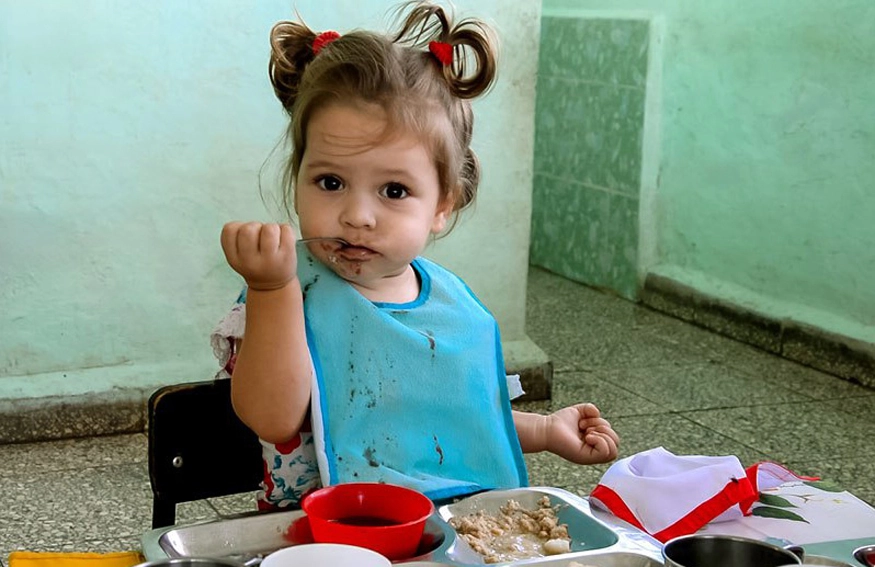The development of an adequate diet from local agricultural production is a benefit that, according to José Alejandro Vedias. A sixth-grade student at the Raúl Gómez Special School, was provided by the project ¡Actua Diferente!, in charge of the World Food Program (WFP) in Holguin.
Located in the town of San Germán in the Holguin municipality of Urbano Noris. The educational institution has been part of the initiative since 2020 which, financed by the Korea International Cooperation Agency (KOICA) through the WFP. Is aligned with the Municipal Self-Sufficiency Program (PAM) and the Food Sovereignty Program.
Ruber Peña Fleitas, coordinator of the project in that region, informed ACN that its objectives include the establishment of links between social protection networks and agricultural entities in order to improve the diet of vulnerable population groups and increase their knowledge of nutritional education.
Children are an important part of these sectors, which is why student centers such as semi-boarding schools and kindergartens benefit from inputs for the cooking and conservation of resources, and productive forms linked to new tools that promote and facilitate the work of the land, he said.
Maité Zapatín Zaldívar, director of the Raúl Gómez García school, pointed out that, with an enrollment of 150 students and 40 workers, it is favored with the acquisition of varied agricultural products, at reasonable prices and without intermediaries, for school lunch that arrives weekly and that in 2024 it will receive around nine thousand kilograms.
Among them are vegetables, root vegetables and protein resources of animal origin, such as eggplant, pumpkin, cassava and beef, previously agreed with the farmer according to their availability and the nutritional needs of the children, for which they took into account the tastes and preferences of age groups, he said.
From the La Isabela farm, with more than one hectare dedicated to the planting of vegetables, belonging to the Mario Muñoz Credit and Services Cooperative (CCS), farmer Gilberto Velázquez works to provide crops in good condition to the center, about which he commented that, based on the demand for this, he delivers a monthly figure of more than 500 kilograms.
The bulk of these are made up of beans, tomatoes, okra and others, which due to their characteristics are easily adaptable to the climatic conditions of the country.
The province and will improve in quality and quantity with the incorporation of a crop house donated by the program. He explained.
Zapatín Zaldívar also added the importance of Act Different! For the acquisition of an adequate nutritional culture in students, and emphasized the relief of families to be able to see the sustenance of their children guaranteed during the study day and the positive change that their culinary tastes have given, thanks to a varied and healthy menu.
The also known as the Koica project, implemented by the WFP, belonging to the United Nations. Provides direct aid to more than eight thousand people in five municipalities in eastern Cuba. Also has among its purposes the integration of agroecological practices, gender equity and the strengthening of agricultural value chains.
With information from Cuban News Agency
Translated by Radio Angulo
- Medical Equipment in Holguin Guaranteed to Be in Operation - 12 de February de 2026
- Aid Arrives in Cuba from Mexico - 12 de February de 2026
- Tauba Holmotor in Holguin Expands Production Through Innovation - 12 de February de 2026

